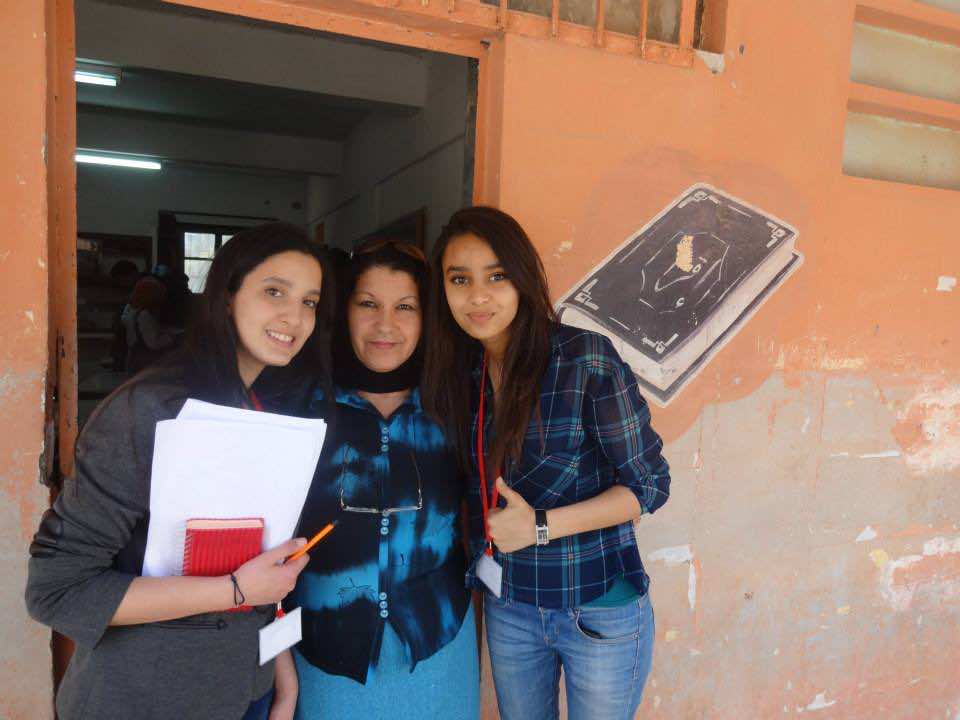
Safi - When teens take action, take off your hat to them; if you don’t have one on, just applaud them, but do it warmly!
This is what I did when a group of students in my school took over the management of the school for an entire day. The responsibilities were beyond their age and presumably beyond their abilities, but they proved to be equal to the task. The details of this operation constituted an interview with the substitute principal, Taha El Jamae, a 2nd year baccalaureate physics student, and the substitute vice-principal, Kaoutar Derraj, a 2nd year baccalaureate maths student, described in this article.
The idea of a day of school management by students was the fruit of some students’ zeal regarding the chaos in their school, Hassan 2 Qualifying School, which is a characteristic of most public schools. It is the most crowded one in Safi and a melting pot of students from different social categories. We find serious, hard-working students, as well as careless, wild, and uncontrollable ones. Hence, some of the more zealous ones felt very concerned with the situation and decided to do something with the approval of some of their teachers and the headmaster. Their plan aimed at getting closer to the administration in order to experience the daily problems of running a public school.
The students involved focused on problems that they face with their peers and figuring out some possible solutions. The substitute administration (constituted by the students) included students of all levels, including some less serious ones, with the idea that the experience might lead them to the right path .The plan of action was agreed upon in a prior meeting and the tasks were divided up by means of a coin-toss.
The day started with the whole school sing the national hymn, something unusual for a Wednesday, as this is always done every Monday according to the ministerial instructions. The school gate and the staff room were closed exactly at 8:00, which upset some late teachers, as they usually leave their teaching supplies in the room. However, the substitute instructions were firm: neither students nor teachers were permitted to be late. After the bell rang, the schoolyard was deserted except for the substitutes and the bursar offering her assistance.
Later on, plastic bags were distributed to the teachers for students’ paper rubbish, which would be collected at the end of the day. Small sheets were handed out to the teachers to record the number of delays and absences so that the substitutes could compare them to the ordinary days. The same process was carried out in the afternoon in an even better way, as the substitutes hadn’t gone home for lunch so that they could study any unexpected cases. The operation was followed up by a show on the students’ rights and duties according to the school legislation and a round table discussion in the presence of some teachers to evaluate the results of the day.
In an interview, the substitute principal and vice-principal deemed the experience successful. Though it was just one day long, the difference it made was crystal clear. Their peers responded positively to their commands; “teens tend to listen to their peers rather than to adults,” they said. Though they forbade wearing hats, they ignored the use of mobile phones and headphones in the school yard, as long as they didn’t delay the students in getting to their classes.
The substitute administrators intend to repeat this experience and try to help the administration as often as possible in accordance with their availability. They concluded with a message: “Things are getting bad in most of the public schools, which are our second homes; we spend an important part of our life in them. So the change has become necessary, but it won’t come by itself if we keep waiting for it or for the others to do things for us because we are more concerned and because one hand can’t clap.”
© Morocco World News. All Rights Reserved. This material may not be published, rewritten or redistributed



